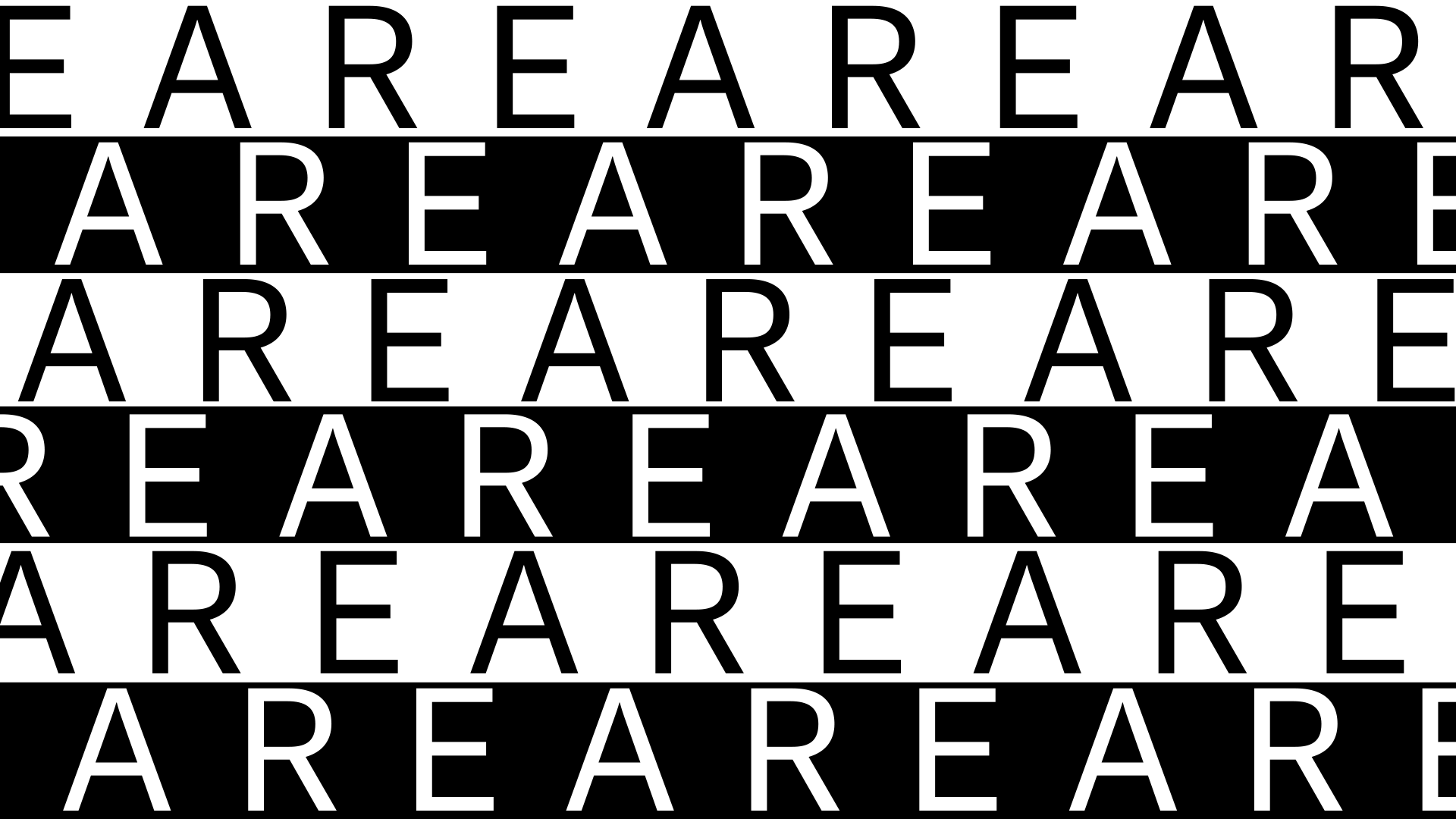NOTES ON THE SONIC BODY. FLESHING THE VOICe
UNTRAINING THE EAR DAYS 14.06.–16.06.2019
Concerts, Talks, Workshops
with Ain Bailey, Alessandra Eramo, Rehab Hazgui, Edyta Jarząb, Brandon LaBelle, Diana McCarty, Ute Wassermann, Christina Wheeler, and others.
TICKETS via Resident Advisor
All events are accessible by wheelchair.
Programme
3-Day-Pass 22 (20) EUR
Friday 14.06.2019 1-Day-Ticket 8 (6) EUR | |
13:00– | Ain Bailey What Does Your Life Sound Like? Workshop |
20:00 | Alessandra Eramo Tracing South Performance & Conversation |
Saturday 15.06.2019 1-Day-Ticket 12 (10) EUR | |
12:00– | Edyta Jarząb What Can We Hear With A Vagina? Can We Turn Off That Lady's Microphone? Workshop |
| 18:00 | Diana McCarty Flaming Reboot Lecture |
19:00 | Ute Wassermann Gorgo Performance |
20:30 | Ain Bailey Five Car Train To Freemont Performance |
SUnday 16.06.2019 1-Day-Ticket 12 (10) EUR | |
15:30 | Alessandra Eramo Voice. And Beyond Lecture |
16:30 | Brandon LaBelle On Poetics and Acoustic Justice Lecture |
| 17:30 | Break |
18:00 | Rehab Hazgui Performance & Conversation |
19:45 | Break |
20:00 | Christina Wheeler Emerge From the Totality of Blackness Performance & Conversation |
22:30 | Music & Drinks |
Workshops
To participate in one or both of the workshops by Ain Bailey (14.06.2019 13:30–16:30) and Edyta Jarząb (15.06.2019 12:00–15:00), please register at listeningsessions@savvy-contemporary.com. Everyone is welcome to join, no singing or musical experience needed.
14.06.2019 13:30–16:30
Ain Bailey: What Does Your Life Sound Like?
What are the six sounds that have a particular resonance for you? Perhaps it is the sound of a creaking door in the house of a beloved family member; the call to prayer from a mosque in your neighbourhood; the song/piece of music that reminds you of your first love or the soundtrack of a film or a track in a club that feels like home. The sonic selections of the workshop participants will be shared in a listening session, and each participant will be asked to consider and reflect upon their choices.
Ain Bailey is a sound artist and DJ. Her practice involves an exploration of sonic autobiographies, architectural acoustics, live performance, as well as collaborations with performance and visual artists.
15.06.2019 12:00–15:00
Edyta Jarząb: What can we hear with a vagina? CAN WE TURN OFF THAT LADY'S MICROPHONE?
Can we turn that lady’s microphone off? Hearing research suggest that music is phallic phenomenon, Pauline Oliveros in turn claims that music can be “actively penetrated” and wonders why women do not have banana shaped ears. Following the stereotype that music is penetrating, she came up with active listening which is penetrating sound itself. Do the voice and listening have a gender or sex? How is voice quality organizing the public sphere? How can listening ground the amplification of social resistance? A performative lecture on the nature of voice and listening as biopolitical phenomena will be followed by a workshop which looks at a possible balance between sounding and listening through focusing on energetic processes, playfulness, improvisation, and non-hierarchic synchronicity. During the workshop we will exercise how to close our ears and listen with vaginas, and one doesn’t need to have one. "What can we hear with a vagina?" – is a question that appears in the text "Towards Vaginal Listening" by Anna Raimondo.
Edyta Jarząb is a performance and sound artist working with the voice and machines, poetry, field recordings, radio waves and body as a sensitive transmitter and receiver.
The rhythms of my bodily life
encoded in the theater of my mother's womb
I listened from the beginning
universal process
cellular language familiar to all sentient beings without exception
In the UNTRAINING THE EAR DAYS we focus our listening on the multi-modality of voice. We venture to listen to voice beyond privileging tone, frequency or pitch, complexifying words, morphology, and language through vocality of sounds or non-verbal utterances. A series of performances, lectures, workshops, free-form contributions respond to our endeavor of challenging what it is we call listening, in this particular instance focusing on voice. Additionally, we survey how forming meaning through the mouth, face, muscle and flesh, translates into possibilities of listening to voices. We collectively pay attention to the process in which the sound of the inward self is transmitted and listened to through the whole voice rhythmically as instigated by the body.
Together with the artists, audiences, listeners we search for different modes of listening – crossing between the public and the private spheres of hearing voices. Who is a voice? What is a voice and how (who) owns our voice(s)? How the idea of a voice is often commodified? What other modes can we employ in listening to voice, is it in the dubbed or in echoed? And how not all voices have equal access to the process of voicing? We are proposing to think together about how listening could open up new ways of hearing a voice. During this encounter, we give ears to Ain Bailey’s electroacoustic compositions that are inspired by ideas and reflections on silence and absence, architectural urban spaces, and feminist activism. We listen to Alessandra Eramo's hypnotic voice and to her electronics, moving beyond sound into more visceral layers of poetic expressions. Rehab Hazgui lets herself be guided by the voice of her machines, pushing the listener into a symbiotic dimension of performer-performance. Christina Wheeler’s Emerge from the Totality of Blackness takes us into a full vocality of the body, engendering a space that reframes our experience of corporeality. Brandon LaBelle’s seminar will focus on listening and sound, voice and speech magnetizing the two key themes of “poetic knowledge” and “acoustic justice.” With Ute Wassermann, we lose ourselves to many voices, those emitted by the human mouth becoming non-human and otherworldly sonic expressions and embodied gestures.
These sessions, in an intense three days program, are an attempt to listen to voice beyond binaries of the spoken and the written context of the vocal [1]; or voice dictated by the logic of the written in the coherence of structured voice(s). If one could take agency in what Edouard Glissant refers to as “delirious speech” [2], maybe one could listen to voice as healing – healing the scarred, exhausted, and punctured souls, heard in whispers, hisses, but also in screams, accelerated speech and sound of the hysterics. A space in which the "delirious" voice becomes "a survival technique,” [3] notably when subverting structured and formed voice, which could also scar, hurt, traumatize, and other those who speak it "falsely". So, if we lose ourselves to our voice(s), to that delirious state of voicing, to the nonsense of the spoken, could we listen, learn and eventually share without doubting inappropriateness?
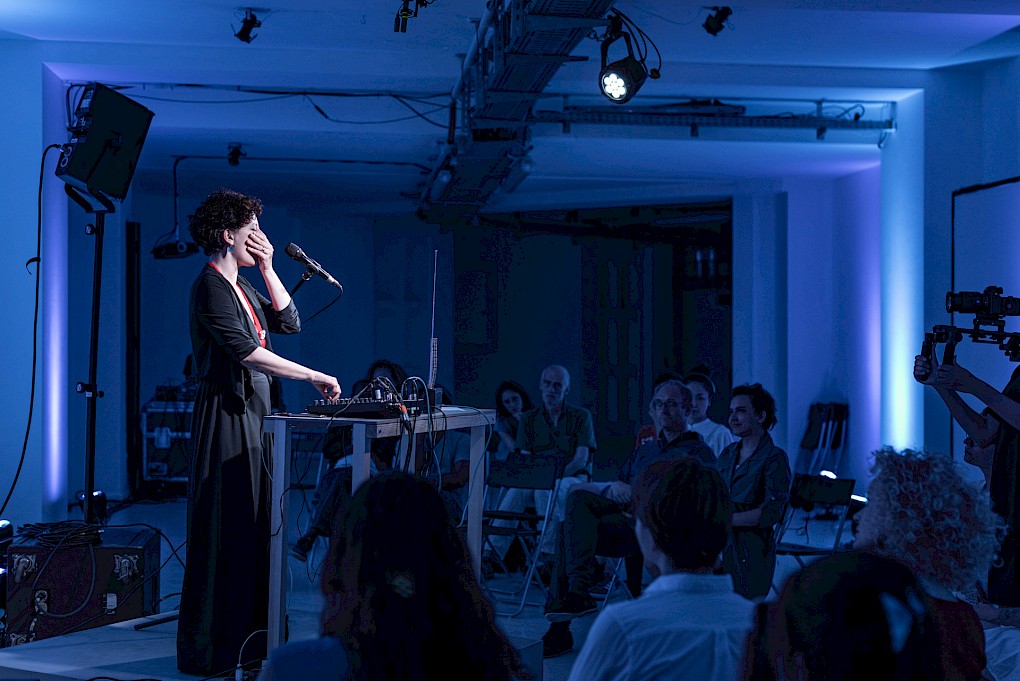
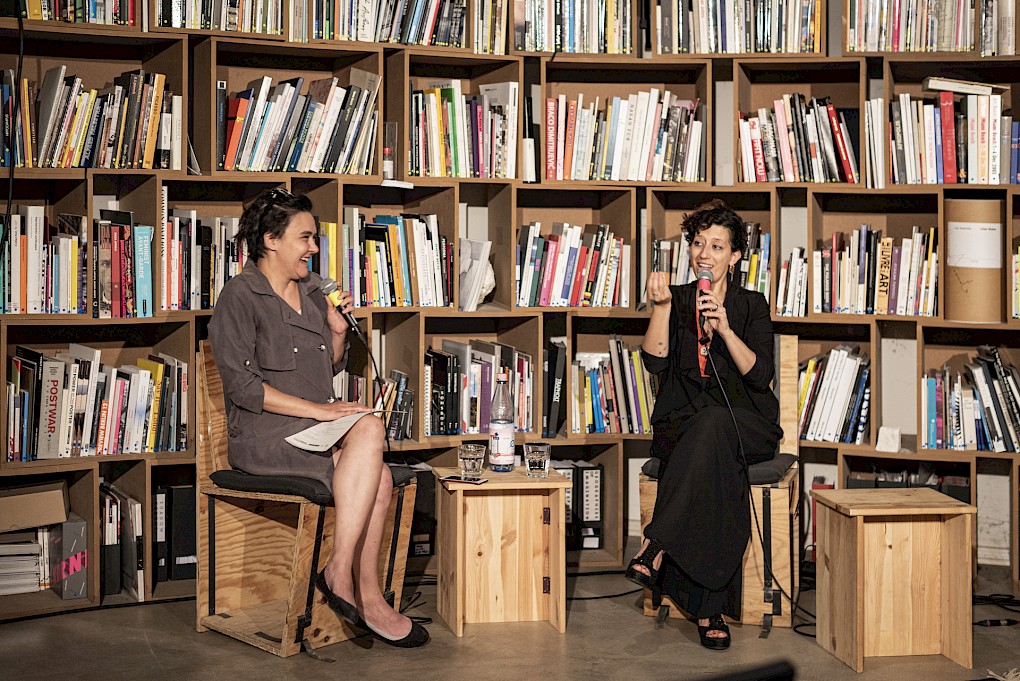
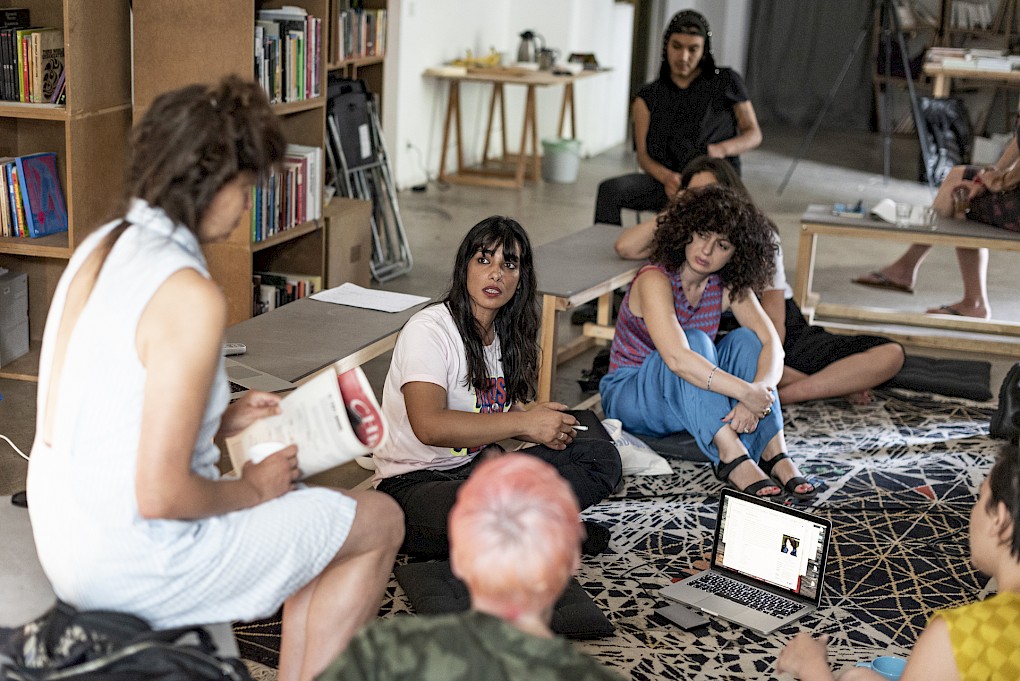
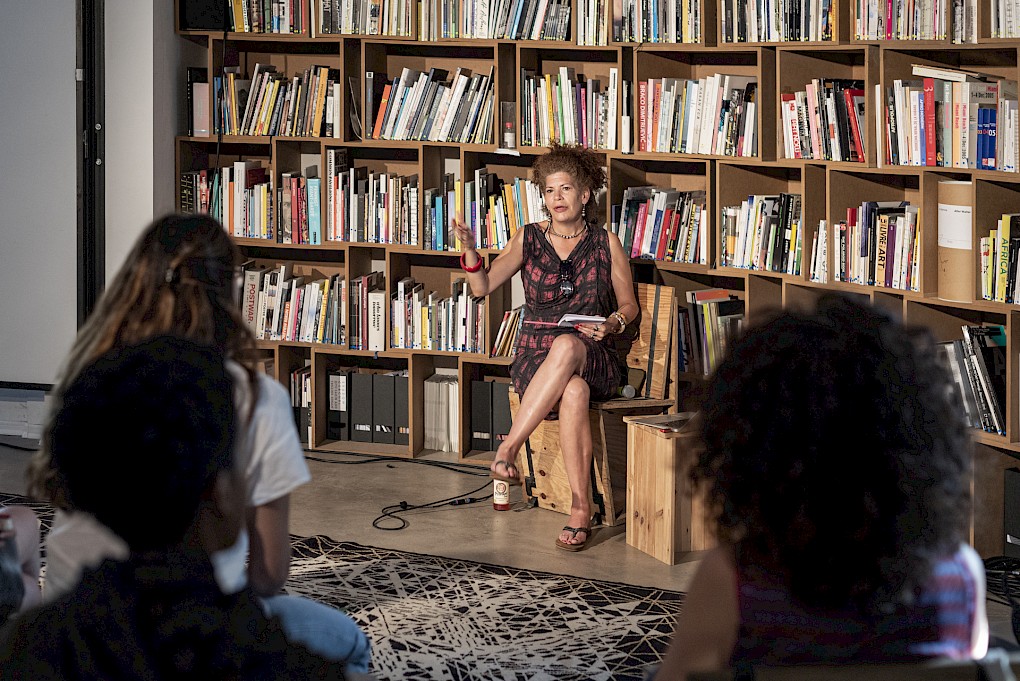
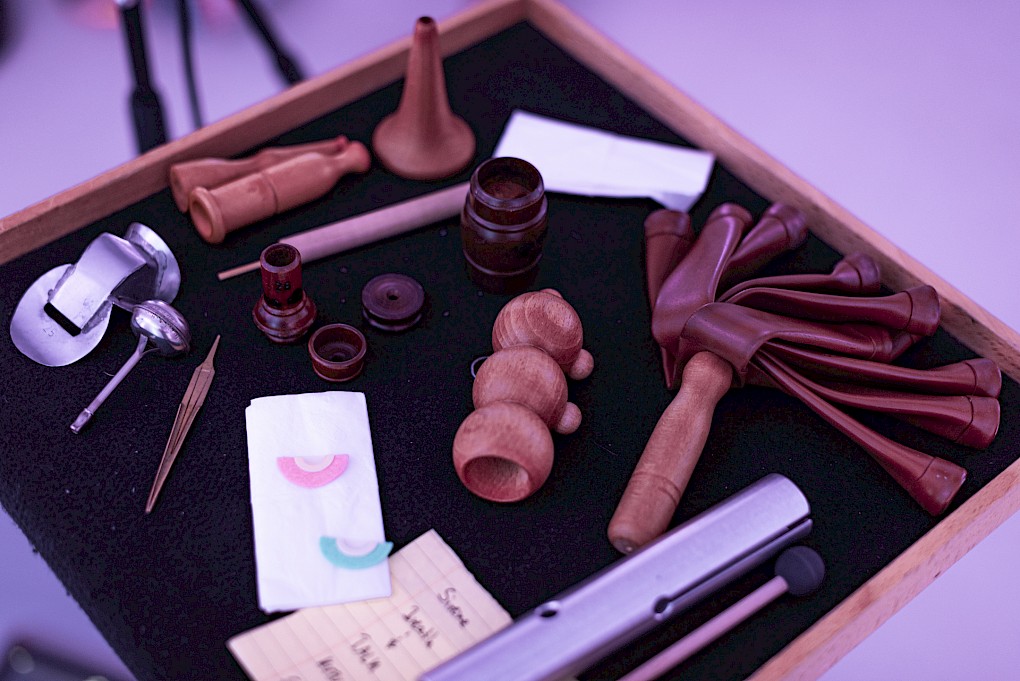
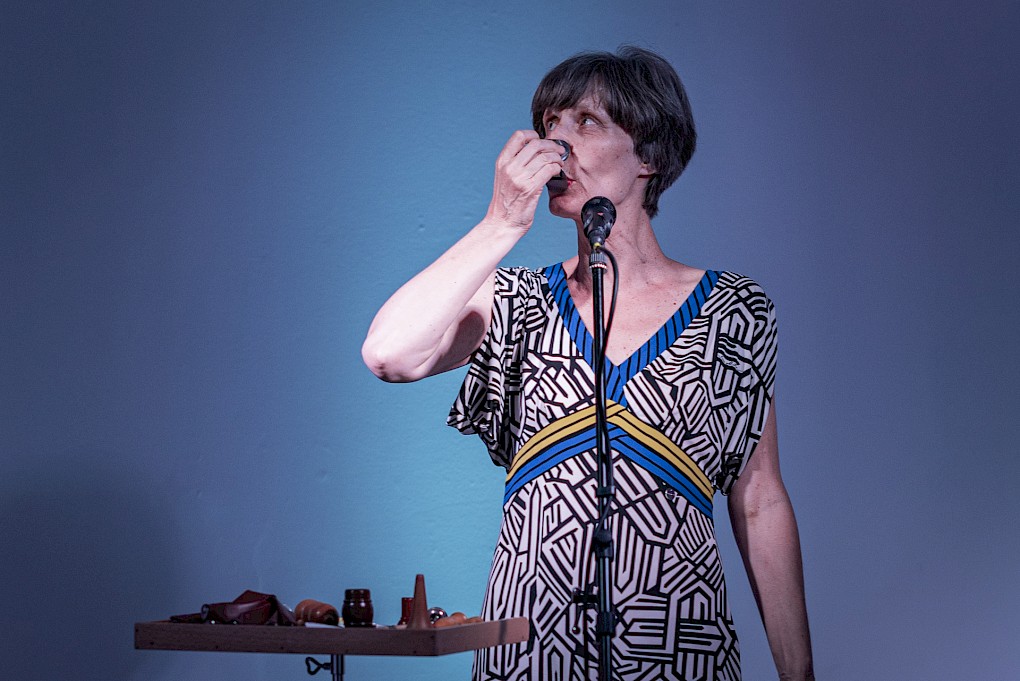
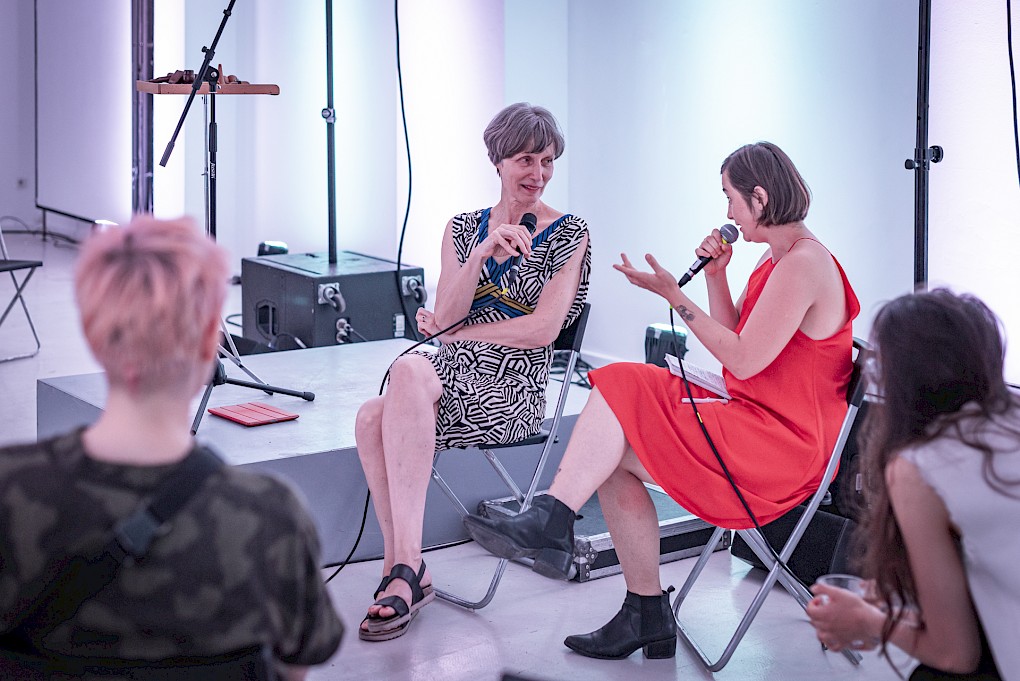
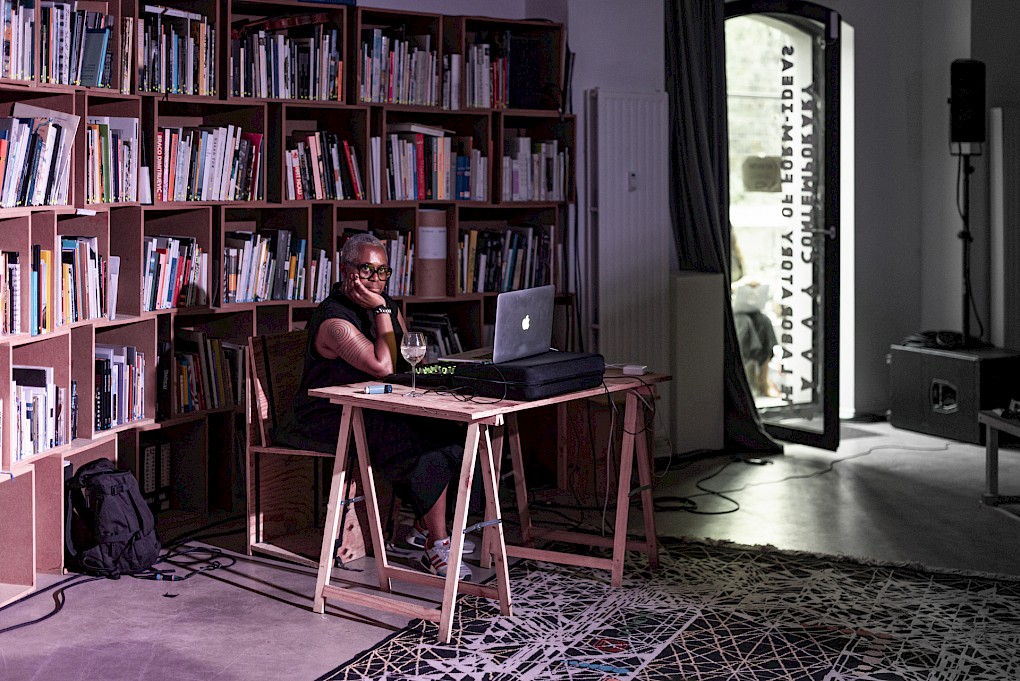
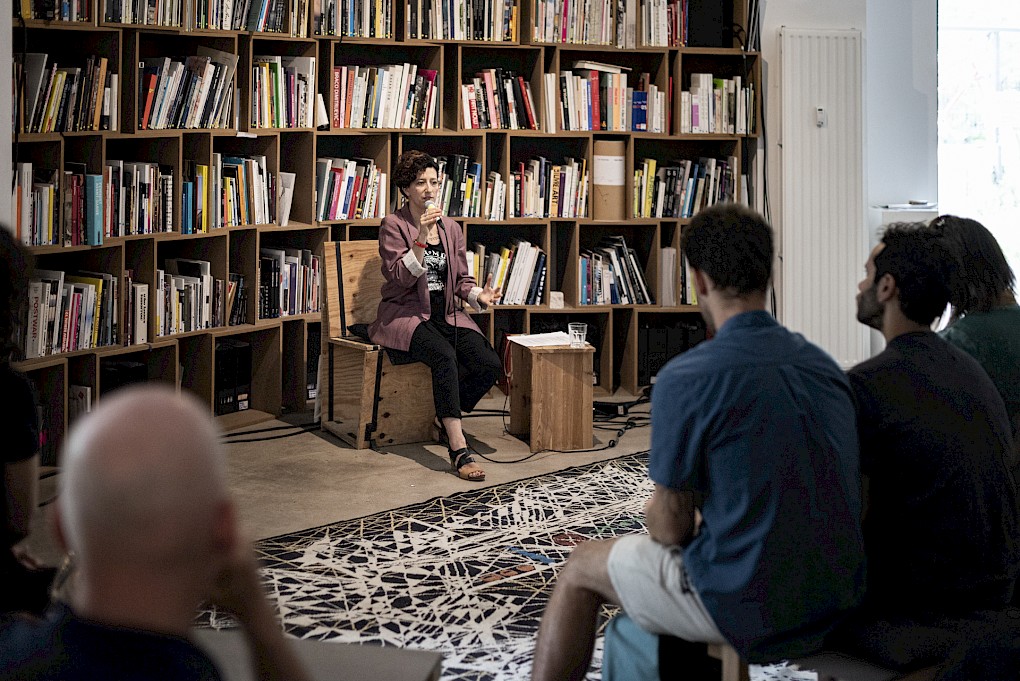
These Listening Session Days are a part of a new cycle of Untraining the Ear – a month long program of performances, installations, workshops, symposia, talks, and more magic.
With the Listening Sessions, SAVVY Contemporary, Deutschlandfunk Kultur and CTM Festival suggest an alternative way to listen to music and sound. In order to contextualise how we listen to the world today we also need to replay the past of abounding sonic references. We (the audience, the performers, the space, the radio, the moderators and the technicians) will rhetorically navigate through archives of maverick composers in the attempt to reindex their contributions, to create other possible genealogies and narratives. By involving sound practitioners coming from diverse genres to perform, and scholars to discuss works of the composers, we listen back to the influence and ingeniosity of musicians and sound artists who defy the linearity of 20th century avant-garde music history. We would like to shed light on and unbox works of pioneers such as Halim El-Dabh, Eliane Radigue, Jose Maceda to mention a few. We will also commission new works to echo and reflect (with a contemporary take) rare archival body of works that have been marginalised by history of avant-garde music and sound art.
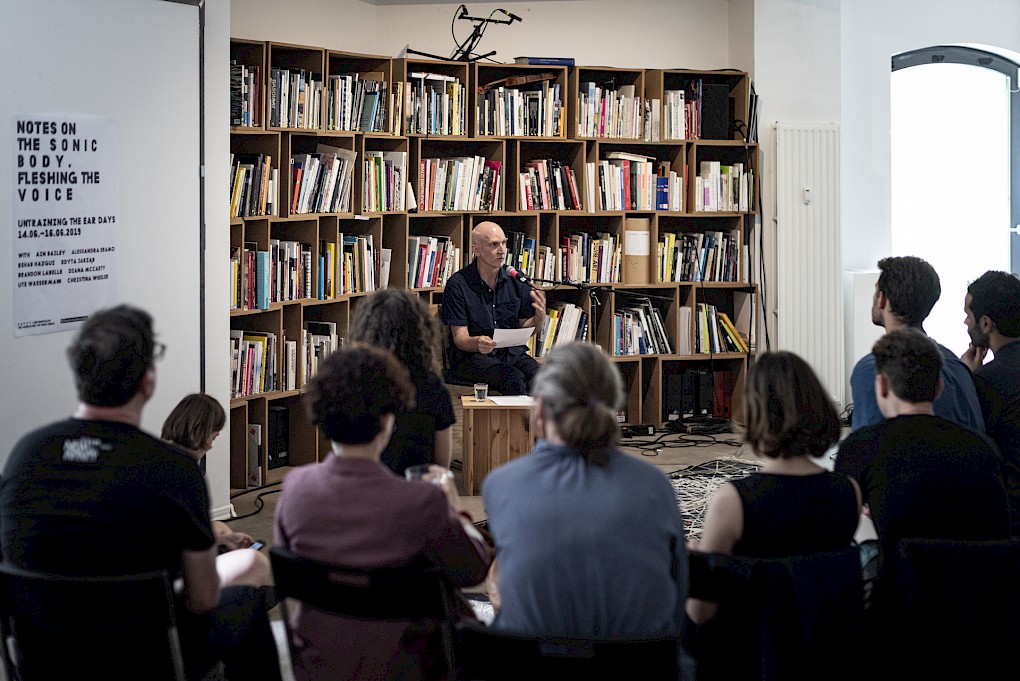
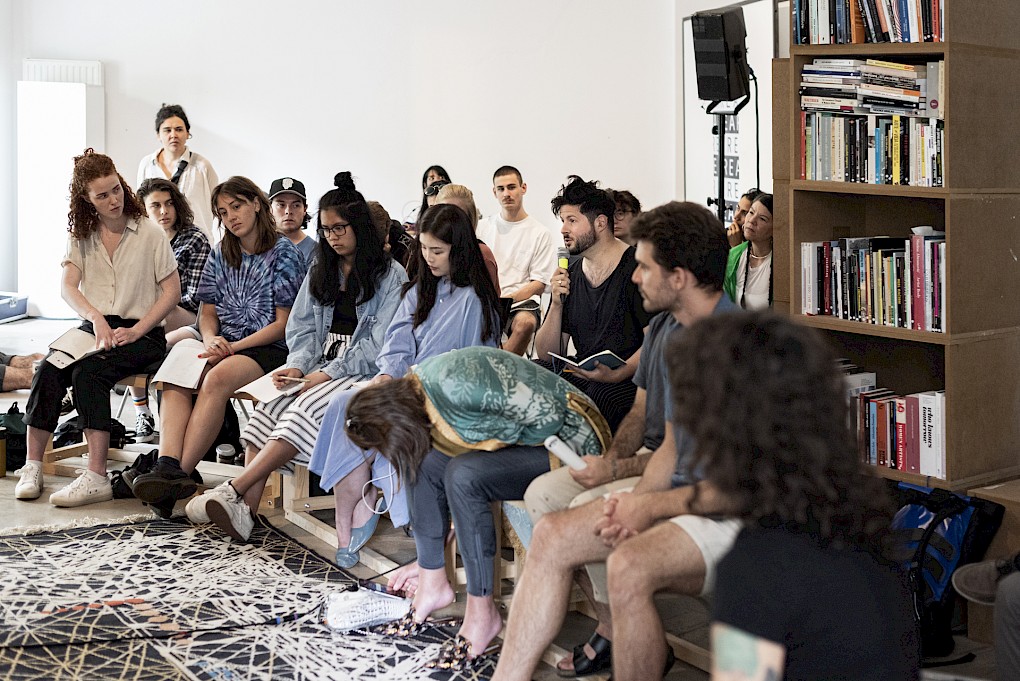
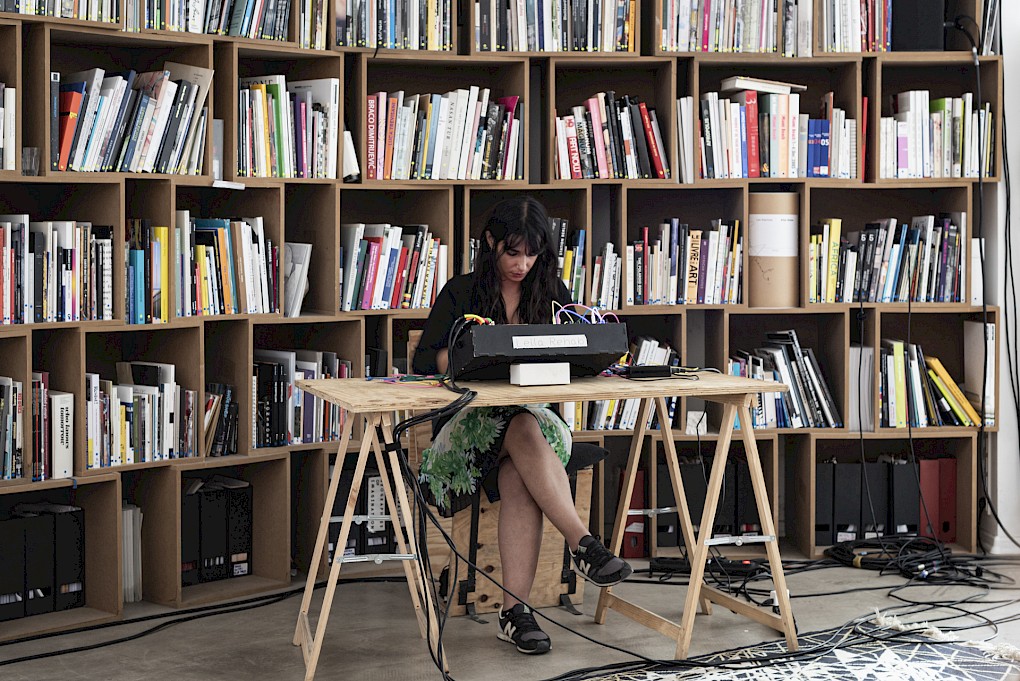
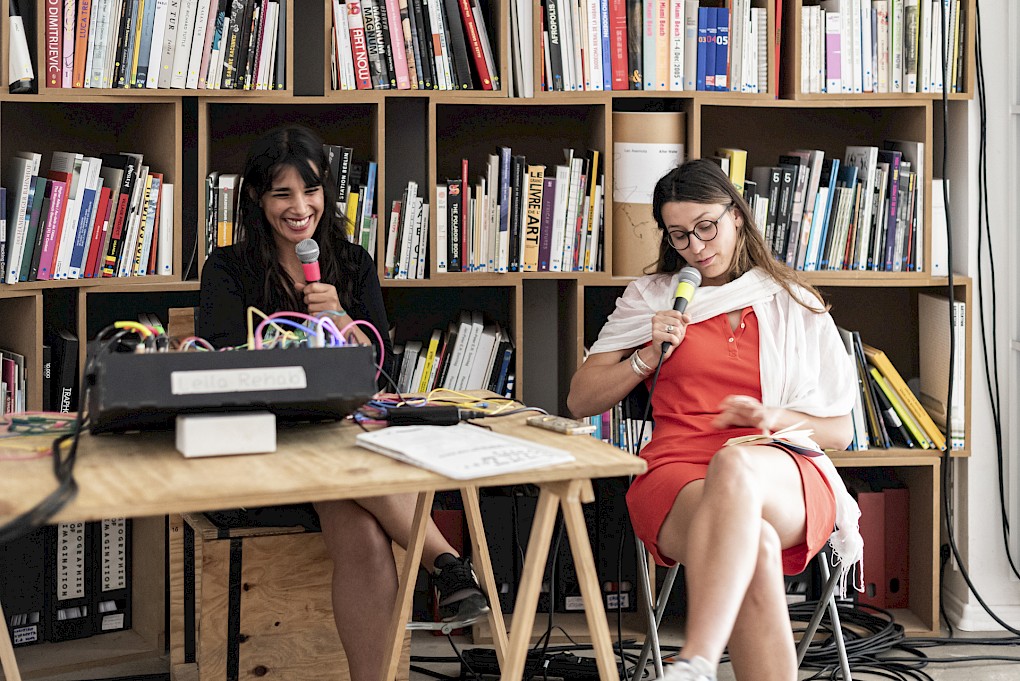
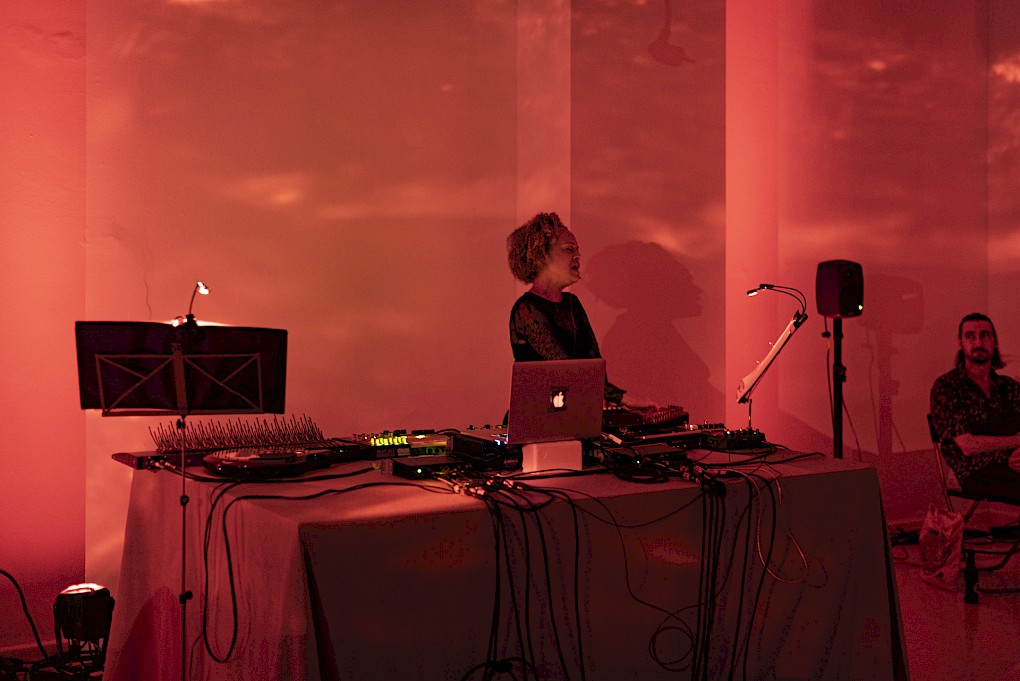
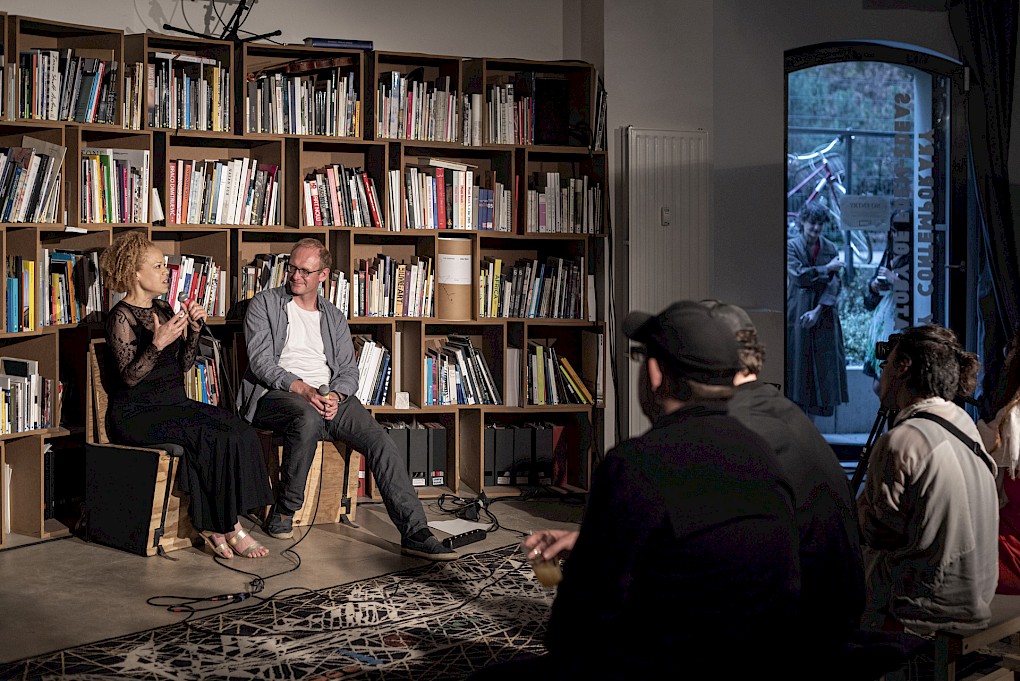
Curation Kamila Metwaly
Co-Curation Marcus Gammel, Jan Rohlf
ArtisticDirection Bonaventure Soh Bejeng Ndikung, Antonia Alampi, Elena Agudio
Production Beya Othmani, Ola Zielińska
Communication Jasmina Al-Qaisi, Anna Jäger
Visuals Elsa Westreicher, Lili Somogyi
Management Lema Sikod, Lynhan Balatbat-Helbock
TECH Bert Günther, Emilio Cordero, Max Schneider
In Collaboration with Deutschlandfunk Kultur and CTM Festival
ON AIR Klangkunst by Deutschlandfunk Kultur, presented by Esther Schelander
Support Musicboard Berlin
Adriana Cavarero, “A Vocal Ontology of Uniqueness,” in: For More Than One Voice: Toward a Philosophy of Vocal Expression, California, Stanford: Stanford University Press, 2005, 173-182.
Edouard Glissant, “The Situation of the Spoken”, in: Caribbean Discourse. Selected Essays. Caraf Books: University Press Virginia, 1989.
Ibid, 2.

